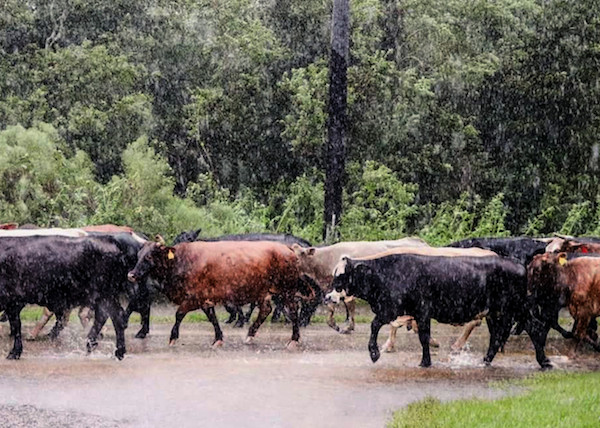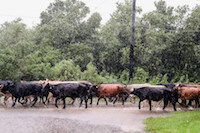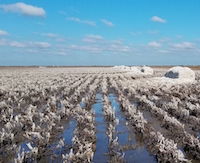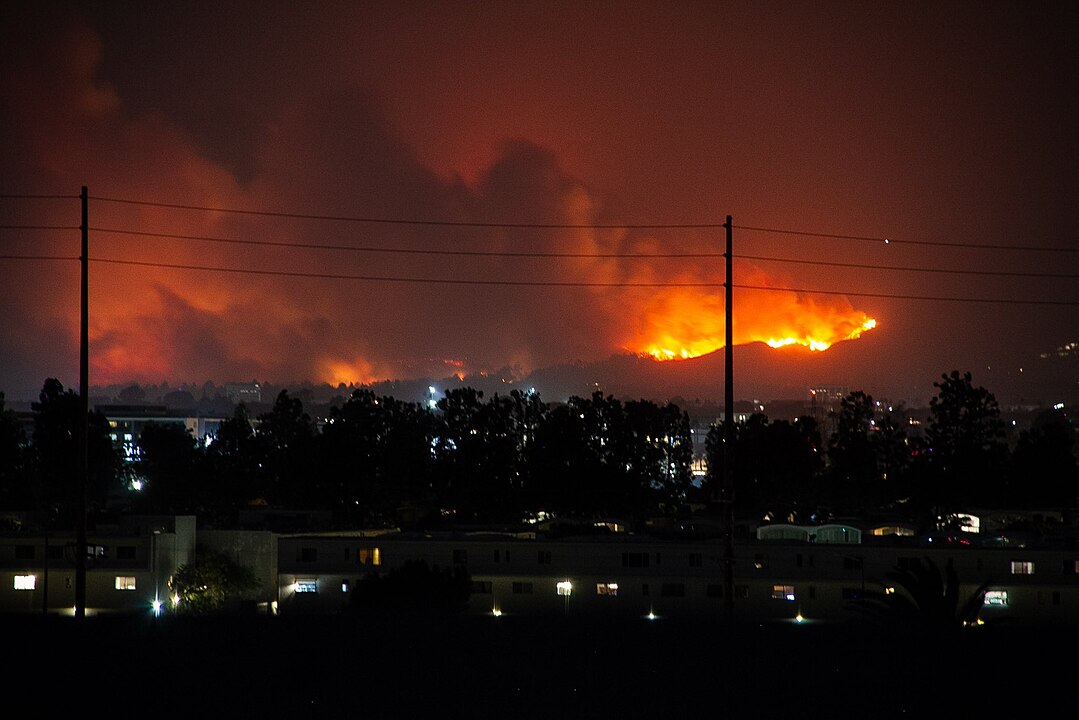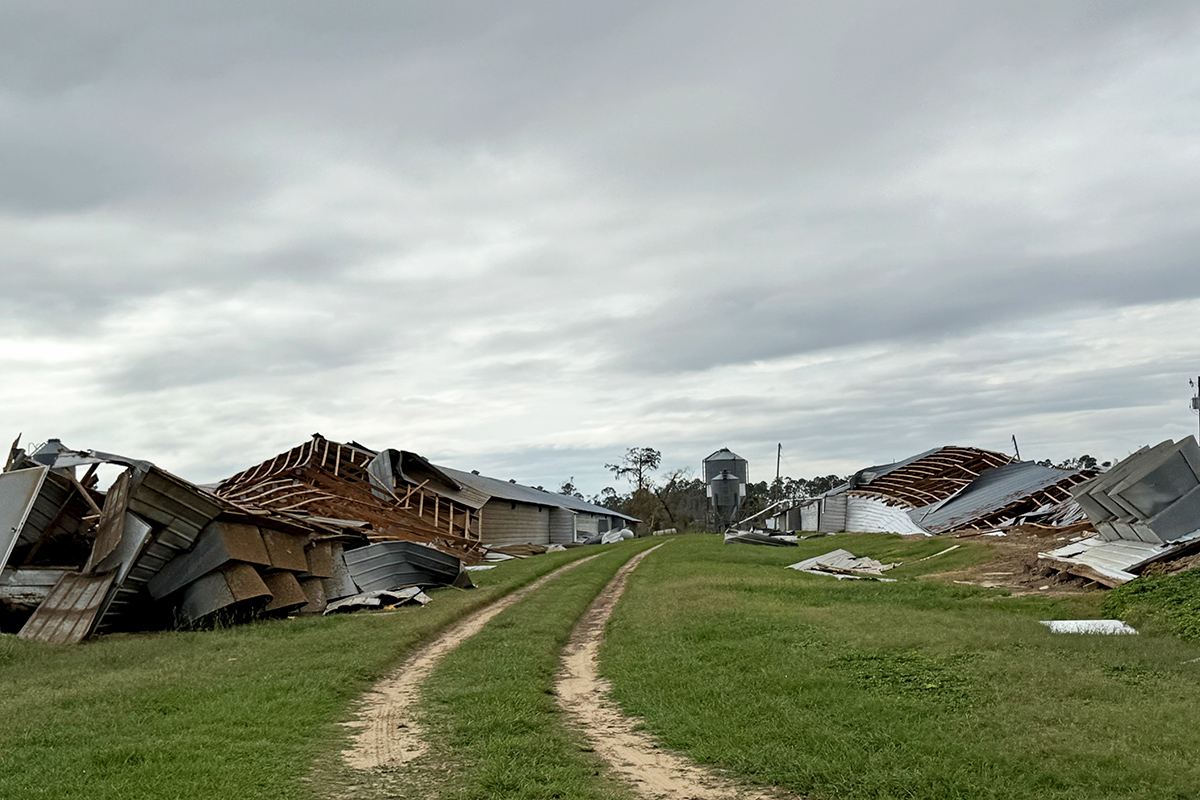When emergency personnel say it’s time to evacuate, University of Georgia Cooperative Extension’s Tim Davis takes them at their word. As a longtime county Agriculture and Natural Resources Extension agent, Davis has seen firsthand the devastation that rain, floods, tropical storms and hurricanes can cause to property.
“I tell everyone to stay as long as they safely can, but when the word goes out to evacuate, that’s what you do,” said Davis, who is also Chatham County Extension coordinator, located on Georgia’s coast. “No amount of property is worth putting human lives at risk.”
Previously, as a county Cooperative Extension agent in Columbia, South Carolina, Davis worked with that state’s emergency operations center to manage animal and agricultural emergencies. In 2015, for example, 13 inches of rain fell in his county in just six hours, which caused a dam to break.
“For the first 30 to 36 hours, I was one of two people on our team who could physically get to work to help,” he said.
He’s worked on the front lines of weather emergencies, so Davis understands the helplessness Texas farmers and ranchers felt while waiting for Hurricane Harvey floodwaters to recede so they could assess the damage to crops and loss of livestock.
“You do lose animals (during storms), but it’s also amazing to see their resilience. There was a lot of livestock killed in Texas, but it’s unbelievable to see that a lot of them made it through,” he said. “In South Carolina, horses were up to their chins in water and still made it. They found high ground, stood their ground and made it.”
Today, as Hurricane Irma heads toward the continental U.S., Georgia farmers are doing what they can to prepare. Livestock can be moved from the storm’s path, but plants can’t be relocated. Georgia growers currently have a lot of major crops, like peanuts, soybeans and cotton, in the fields.
“All of those crops are at risk. In South Carolina during the flooding, the cotton and peanuts were a complete loss. Even after it stopped raining, it was too muddy to get in the fields,” he said. “When it comes to agriculture, we just won’t know until after the fact.”
Last year, Tropical Storm Matthew dumped 17 inches of rain on the Savannah, Georgia, area, the Chatham County seat, where Davis is based. Most of the damage involved fallen trees, which Davis said may seem like a blessing as Hurricane Irma looms in the distance. Weak limbs were torn away and unstable trees were uprooted by Matthew.
As of Thursday, Sept. 7, Hurricane Irma is predicted to be a Category 3 or 4 hurricane if it hits the U.S. mainland.
“Matthew brought tropical-storm-force winds. Irma is something altogether different,” Davis said. “If it doesn’t wobble, it will be straight on top of us, and the timing has it coming right at high tide. If it’s to the east at all, storm surges could be as high as 15 feet. Then again, it could slow down and become a tropical storm.”
Of course, Georgia’s coastal residents hope the storm slows down and heads out to sea.
“The Extension office is part of the Chatham County team, so I will be staying until the emergency team evacuates to Statesboro, (Georgia). But I’ve made plans for my family to evacuate,” Davis said.
Davis encourages all Georgians, whether they’re in the storm’s path or not, to put together at least a three-day emergency food and water supply.
“I have one with me all the time. My truck has three days of food in it in case I break down somewhere,” Davis said.
Families should also create a plan that includes a list of emergency contact numbers and a designated person to contact in case family members become separated. Families should also identify a common meeting place in case they are not able to return home.
If a mandatory evacuation is declared, Davis said residents should prepare to be away from home for a few weeks.
“You could just be gone a few days, but the key message is to be prepared. When they say ‘Leave,’ don’t hesitate,” he said. “And, be patient about coming back home. You put yourself at risk and you put emergency responders at risk if you come back too soon. (Storms) are a hit or a miss. The best thing you can do is get your ducks in a row and get out as quickly as possible.”
For more information on preparing for storms, see UGA Extension’s collection of resources at extension.uga.edu/topic-areas/timely-topics/emergencies.html.

